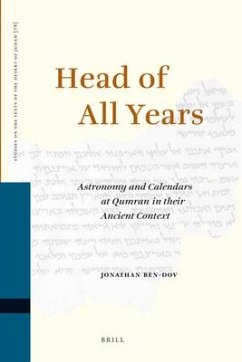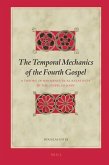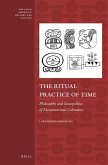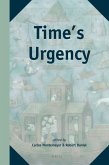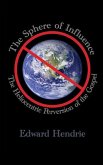Rather than being an isolated, primitive body of knowledge the Jewish calendar tradition of 364 days constituted an integral part of the astronomical science of the ancient world. This traditiona "attested in the Dead Sea Scrolls and in the Pseudepigraphaa "stands out as a coherent, novel synthesis, representing the Jewish authorsa (TM) apocalyptic worldview. The calendar is studied here both a oefrom withina a "analyzing its textual manifestations a "and a oefrom withouta a "via a comparison with ancient Mesopotamian astronomy. This analysis reveals that the calendrical realm constituted a significant case of inter-cultural borrowing, pertinent to similar such cases in ancient literature. Special attention is given to the a oeBook of Astronomya (1 Enoch 72-82) and a variety of calendrical and liturgical texts from Qumran.
Hinweis: Dieser Artikel kann nur an eine deutsche Lieferadresse ausgeliefert werden.
Hinweis: Dieser Artikel kann nur an eine deutsche Lieferadresse ausgeliefert werden.

